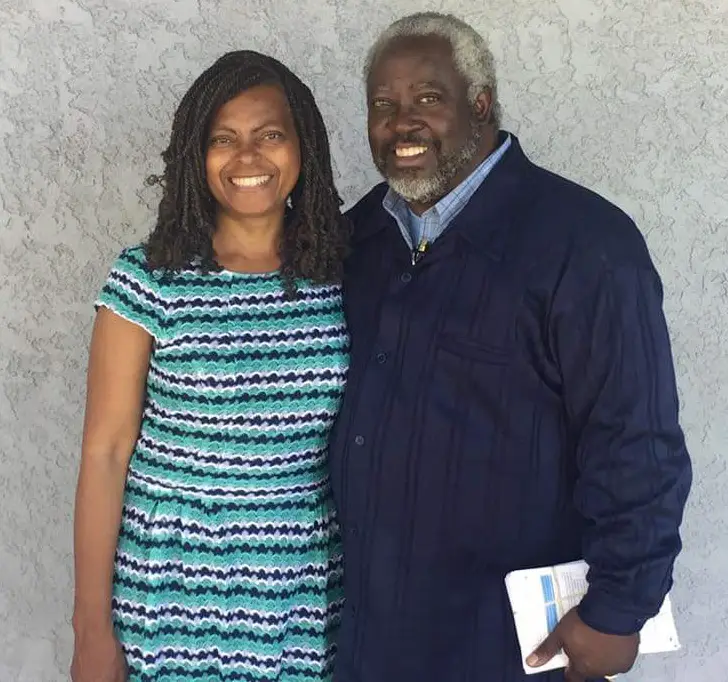EL CAJON, Calif. (BP) – It perplexes Pastor Rolland Slade that certain secular institutions have the good sense to strip professional credentials from sex offenders, while some churches seem to overlook their crimes.
“The world can’t have a better idea than we do. We’re serving God. So how could their standard be that person’s got to change their career, and our standard is we put them back? That doesn’t make sense, at least not to me.” Slade made the remarks in an interview with Baptist Press shortly after his election in June as chairman of the Southern Baptist Convention Executive Committee.
Tuesday (Sept. 22), chairing the first Executive Committee meeting after his election, he emphasized the church’s responsibility to provide a safe haven for sexual abuse victims.
“It’s very personal to me,” he told the EC in his opening remarks. “For the last 40 years of my life, I have been in touch with a survivor of sexual abuse in church; in fact, we’ve been married 39 years. So when I say it’s personal, it’s personal.”
The pastor of Meridian Baptist Church in El Cajon, Calif., has worked as a teacher and a part-time high school track-and-field coach, and has seen secular groups tackle sexual abuse decisively, although some cases may still remain undetected.
“As a teacher or a coach, if a coach violates that rule, and is brought up on criminal charges, guess what, they can’t be a coach anymore. A teacher does it, can’t be a teacher. Doctor, can’t be a doctor. Lawyer, can’t be a lawyer,” Slade said. “But unfortunately what happens with us in the church, we talk about redemption, and grace and mercy, and I understand those concepts.”
But Slade doesn’t appreciate grace and mercy being used to restore sexual abusers and return them to ministry.
“I understand we can restore them … but we can’t put them back in leadership,” Slade said. “They can’t go back there. They’ve got to find another vocation.”
Slade’s EC chairmanship garners him a seat on the SBC Credentials Committee, charged with reviewing reports of churches operating in ways that are not in friendly cooperation with the SBC.
“The Credentials Committee, now that I’m a part of it, I understand our limited scope.”
Slade said he appreciates the solid accomplishments the SBC has made in fighting sexual abuse, and doesn’t intend to cast a negative tone on advancements already made in ministering to sexual abuse survivors.
“As it stands today, the Credentials Committee can determine that a church is not in friendly cooperation with the SBC and make a recommendation to the Executive Committee to disfellowship a church,” Slade said. “Or in the case where the church is technically in friendly cooperation, it recommends not to disfellowship. In my mind those are two ends of a long spectrum.”
Slade said he doesn’t anticipate a solution in handling sexual abuse that will please everyone. He realizes that while teachers, doctors and others are stripped of their credentials, stripping ministers of ordinations likely would be neither plausible nor effective among autonomous Southern Baptist congregations, as each church handles ordinations differently.
Slade envisions a multipronged approach to fighting sexual abuse, much in the same way the medical community targets certain diseases with medical care, education and behavior modifications. He recommends the Caring Well Challenge the SBC launched in 2019 as a resource for churches, coupled with other targeted steps.
The Caring Well Challenge was created as the SBC addressed sexual abuse extensively in 2018 and 2019. SBC President J.D. Greear initiated in 2018 a Sexual Abuse Advisory Study in collaboration with the Ethics and Religious Liberty Commission, that released its findings shortly before the 2019 SBC Annual Meeting in Birmingham. There, messengers received the report, established the work of the Credentials Committee, passed the first of two votes required in two successive years to make sexual abuse the grounds for a church to be disfellowshipped from the SBC, and amended applicable bylaws.
“We need to figure out a way – and I hope that over the next couple of years, we get a chance to really drill down and find a way that we can deal with this issue in the Southern Baptist Convention,” he said, “so that we’re not passing sexual predators from one church to another, one state to another.”
Churches need to understand the long-lasting trauma and vulnerability sexual abuse victims experience.
“If we don’t understand the trauma as a church, oftentimes we re-traumatize them by making them tell their story over and over again, or, we traumatize them by not believing them,” Slade said. “They’re telling you and sharing with you their experience. So now, your part is to investigate that their experience is correct, … and if so, you’ve got to make some change. … You can’t allow that to continue.”
When churches fail to address the issue properly, the victim gets the message that the church’s love is superficial, and because the abusive environment continues, the church remains an unsafe place for victims.
Caring Well materials to help churches learn how to prevent and deal with sexual abuse are available at CaringWell.com.
This article was originally published by Baptist Press at baptistpress.com

